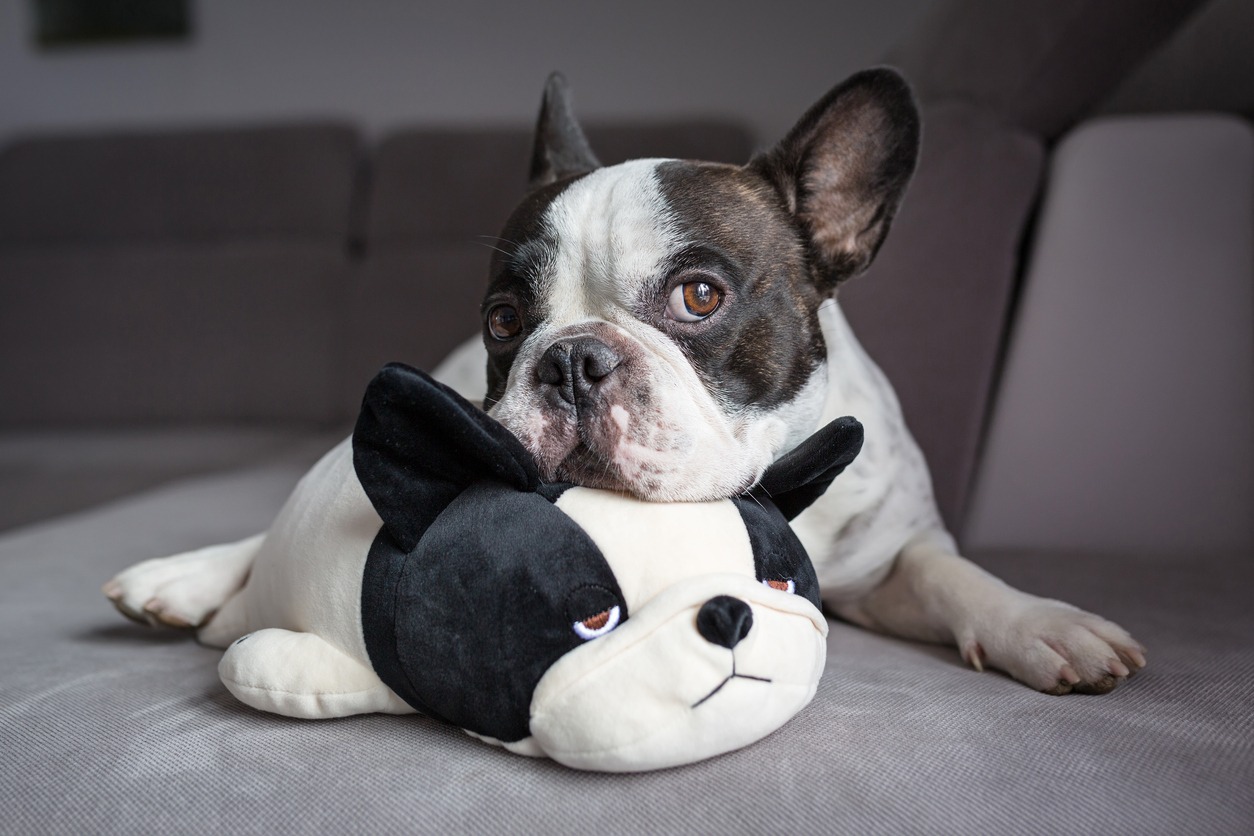Small dogs may quite minute in size, but many have big personalities and enough energy to keep up with bigger dogs. If you’re lucky enough to care for one, you’d likely one to give your adorably fun-sized pup everything they need, including healthy outlets for their energy and rewards for being such a good dog.
One of the best ways to show your small dog just how much joy they bring into your life is to provide them with toys that are not only entertaining, but also safe and suitable for their petite frames. To that end, here are a few things to remember when choosing toys for small dogs:
Ensure the Toys’ Safety
Safety should be your number one consideration when shopping for toys for your small dog. Given that small dogs are typically more fragile than medium to large dogs, make sure that the toys you choose pose no danger to your beloved tiny canine. For example, avoid toys that could break into tiny pieces to prevent injury in case your pup attempts to snack on them.
Choose the Right Size of Toy
Next, opt for toys that are appropriate for your small dog’s size to prevent problems like choking hazards. Steer clear of toys that are too small or have detachable parts that your dog might swallow. At the same time, don’t choose a toy that’s too bulky or too big for your dog to carry around in their mouth.
Personalized dog toys may be among your best options in this regard. Since you know your dog best, you’re in a good position to choose the size and type of toy that they’d like. Well-designed custom pieces make excellent alternatives to well-loved toys that are already falling apart.
Check the Durability and Quality of the Toy
Always choose toys made from durable materials that can withstand a small dog’s enthusiastic play style. Durable dog toys of high quality are not just fun to play with; they are also the safer option for your dog. Even though these toys may be a little more costly than their low-quality counterparts, they’re worth it for the safety and enjoyment that they guarantee for your pup.
Check for sturdy stitching and construction to avoid any potential hazards from torn-off material. You may also want to look for proof that you’re getting the real deal, like other dog parent customers’ reviews on the toy manufacturer’s website.
Avoid Toxic Materials
Dog parents know that their pooches, regardless of the latter’s size, like to bite and gnaw at their toys as well as fetch them and roll them around. That means that it’s especially important to know that the materials used in creating the toy won’t cause any poisoning or adverse reactions on your dog’s part. Read each toy’s label and do some research to guarantee the safety and toxicity-free nature of the toys you bring home.
Consider Your Dog’s Individual Needs and Preferences
Your dog may be set in their preferences when it comes to toys. Some small dogs like to play with balls, while others prefer soft toys like plushies and mentally stimulating toys like rolling treat dispensers and puzzle toys. Rope toys are fantastic for small dogs that love to chew and play tug-of-war, as their texture provides an outlet for their natural instincts.
Always consider the reason you want to buy them a new toy and just how much it will appeal to your canine. This will help narrow your options to toys that have the longest possible usability and service life.
Rotate Your Toys and Supervise Play Sessions with Your Small Dog
Lastly, to keep play sessions with your small dog fresh and exciting, be sure to rotate their toys regularly. Introduce a few toys at a time while keeping others stored away. Funnily enough, this is actually a Montessori-based parenting strategy that also works on dogs.
The goal is to keep your dog entertained during playtime without constantly needing to buy new toys. Be involved in helping your dog choose and play with different toys, and remember to supervise each play session to ensure they’re enjoying the toys safely and avoiding accidents like choking on toy parts.
Final Words
Choosing the right toys for your small dog will surely keep them entertained and happy. On top of keeping them busy and active, playing with their favorite toys will positively affect their mood and mental well-being.
Remember to prioritize safety, to opt for toys suitable for their size, and to select options that align with their preferences. If you have any additional concerns about what types of toys your dog should use given other factors—like their age, their breed, or any ailments or special needs they have—don’t hesitate to reach out to an expert like your local veterinarian or professional dog trainer.
Above all, embrace the joy of play with your small dog and cherish the precious moments you share together while playing indoors or outside. Happy toy shopping and playtime with your pint-sized pal!

